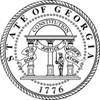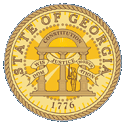
Deal announces Race to the Top grant winners: Awards promote innovation in STEM education and teacher recruitment, development
PHOTO ATTACHED: Gov. Nathan Deal, along with Atlanta Mayor Kasim Reed, announces to officials at Drew Charter School in the East Lake portion of Atlanta that Drew has won a grant to create one of the state’s first STEAM (Science, Technology, Engineering, Arts and Mathematics) schools.
Gov. Nathan Deal today announced five winners of Innovation Fund grants, a $19.4 million competitive grant program created through Georgia’s Race to the Top (RT3) plan. Through the Innovation Fund, the Governor’s Office of Planning and Budget awards grants to partnerships between local education authorities or charter schools, institutions of higher education, businesses and nonprofit organizations that develop or implement innovative and high-impact programs aimed at producing positive outcomes for students.
"The Race to the Top Innovation Fund is a unique opportunity to fuel the innovative ideas of education leaders from across the state,” said Deal. “The projects selected for awards during this first round represent truly innovative and collaborative approaches to educating students. We look forward to scaling the best of these practices to other schools across the state."
The five selected grant recipients are:
• Drew Charter School Partners of Innovation – A partnership between Georgia State University and Georgia Institute for Technology and Drew Charter School to create one of the state’s first STEAM (Science, Technology, Engineering, Arts and Mathematics) schools.
• Teach for Georgia – A teacher pipeline program modeled after Teach for America that will recruit Georgia Institute for Technology STEM majors to teach in rural areas of Georgia.
• 21st Century STEM Collaborations: Applications of the Direct to Discovery Model – A collaboration between Barrow County Schools and the Georgia Institute for Technology to integrate the Direct to Discovery method into the requirements of the Georgia Performance Standards.
• The KIPP Teacher Fellows Program – A teacher induction program that will train Georgia State University and Mercer University College of Education graduates and deploy them to metro Atlanta schools where they are most needed.
• The Regional Charter STEM Academy – A partnership between White, Hall, and Lumpkin county school systems and North Georgia College & State University to create a tri-county STEM charter school.
The Innovation Fund provides competitive grants for proposals that creatively leverage members’ financial, human and intellectual resources to address one or more of the four following priorities:
• Raising student achievement through the development and delivery of applied learning opportunities and experiences directly tied to a subject matter, especially in the fields of Science, Technology, Engineering and Mathematics.
• Raising teacher effectiveness through support for innovative induction programs to bridge the gap between pre-service and career teaching, focusing on providing structured and intensive support to new teachers and leaders.
• Increasing the pipeline of effective educators by developing local capacity through Grow Your Own Teacher programs in rural regions to increase the workforce, especially in high-need subject areas.
• Developing or expanding charter schools that are focused on STEM education to improve the level of STEM instruction in the state and direct students toward in-demand, high-tech careers.
OPB received more than 70 eligible proposals and the Innovation Fund Advisory Board, comprised of members of the business, education and philanthropic communities, is charged with making recommendations to the governor for funding. All applicants will receive detailed feedback in order to strengthen their proposals for the second cycle of Innovation Fund grants, which will be administered this fall.
Georgia was awarded $400 million to implement its RT3 reform plan in August 2010. The state’s application was prepared with extensive input from education stakeholders and members of the business and philanthropic communities, who helped develop the idea to include the Innovation Fund in the state’s application. As interest in the Innovation Fund grows, the state will seek contributions from philanthropic organizations, nonprofits and businesses as a continuing source of start-up capital for promising innovations.
The state will use the Innovation Fund to determine best practices in innovative programming related to STEM education, applied learning and teacher and leader recruitment and development to influence future education policy efforts. At the core of the Innovation Fund is the following theory: IF, public and private organizations are encouraged by financial resources, policy environments and supportive operating conditions, THEN, the State of Georgia will be benefit from a stronger commitment from diverse stakeholders to support and advance K-12 public education, the ability to replicate innovative practices with a demonstrated record of success, and ultimately, improved outcomes for students.
Information about the Innovation Fund may be found on the OPB website (www.opb.georgia.gov).
The Race to the Top fund is a $4 billion grant opportunity to support new approaches to improve schools. The fund was made available in the form of competitive grants to encourage and reward states that are creating conditions for education innovation and reform, specifically implementing ambitious plans in four education reform areas:
• Adopting standards and assessments that prepare students to succeed in college and the workplace and to compete in the global economy;
• Building data systems that measure student growth and success, and inform teachers and principals about how they can improve instruction;
• Recruiting, preparing, rewarding, and retaining effective teachers and principals, especially where they are needed most; and
• Turning around our lowest-achieving schools.
Georgia’s reform plan focuses on strengthening traditional and alternative preparation programs for teachers and leaders, supporting teachers more effectively in the classroom, evaluating teachers and leaders with consistent and objective criteria, rewarding great teachers and leaders with performance-based salary increases, and more effectively using data to inform decision-making, among other things.
